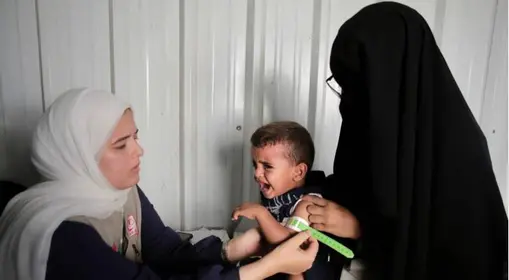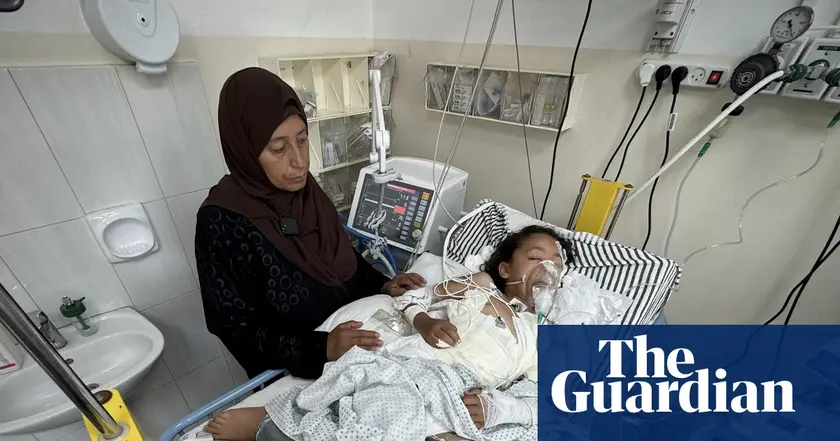T4K3.news
Gaza antibiotic resistance study highlights need for relief
A Lancet analysis finds high rates of drug resistant infections in Gaza amid war and blockade, urging urgent medical shipments and a ceasefire.

A Lancet study documents a high rate of antibiotic resistance in Gaza hospitals amid ongoing conflict and blockade.
Widespread drug resistant bacterial infections rise in Gaza
A peer reviewed Lancet study analyzes 1,300 specimens collected at al-Ahli Hospital in Gaza City between November 2023 and August 2024. It finds that 66.9 percent were multidrug resistant, with bacteria showing resistance to antibiotics such as amoxicillin-clavulanate, cefuroxime and cefotaxime. Resistance to ceftriaxone and ceftazidime was notably high in bacteria from infected wounds and methicillin resistant Staphylococcus aureus was detected in some samples. Al-Ahli Hospital is one of the few Gaza facilities with an operational microbiology laboratory, underscoring how limited lab capacity can shape the picture of resistance in a war zone.
The World Health Organization says the situation is dire: more than half of Gaza’s medicines are running at zero stock, and only about half of hospitals and 38 percent of primary care centers are partially operational. Bed occupancy has soared well beyond capacity at major hospitals, with al-Shifa and al-Ahli under extreme strain. The WHO has urged Israel to allow urgent medical shipments to restock critical supplies, while noting that entry procedures have hindered delivery in the past.
Key Takeaways
"This will mean longer and more serious illnesses and a high risk of transmission to others."
Comment from Krystel Moussally of Doctors Without Borders on patient impact.
"Over half of the Gaza health system's medicines are running at zero stock."
Statement from WHO representative Rik Peeperkorn on medicine shortages.
"Without this ceasefire, the infection burden will escalate further."
Lancet study authors warn of worsening infections without relief.
"Bed occupancy has soared to 240 percent at al-Shifa Hospital and 300 percent at al-Ahli Hospital."
WHO notes extreme hospital strain in Gaza.
The findings show how conflict magnifies a basic health threat. When treatment is disrupted, bacteria adapt and spread more easily, turning routine infections into life threatening cases. The report’s tone mirrors warnings from frontline clinicians who say the consequences extend beyond individual patients to families and communities. This is not just a medical issue; it is a test of humanitarian norms and international response capacity in a confined, volatile space.
Policy questions follow: how can aid agencies coordinate drug supplies, stabilize laboratories, and provide safe corridors for medicines in a context where ceasefire discussions are ongoing but relief is urgent? The Lancet authors call for stabilized laboratories and coordinated drug distribution, stressing that without relief the infection burden will grow. The piece underscores a broader point about global health security: weaknesses in one region can spill over and linger long after the banners fade from the news cycle.
Highlights
- This will mean longer and more serious illnesses and a high risk of transmission to others.
- Over half of the Gaza health system's medicines are running at zero stock.
- Without this ceasefire, the infection burden will escalate further.
- Bed occupancy has soared to 240 percent at al-Shifa Hospital and 300 percent at al-Ahli Hospital.
Political and humanitarian risk around Gaza medical crisis
The article engages with war, blockade and international aid, which can provoke political debate and affect humanitarian access. It highlights sensitive topics that may attract criticism or influence policy discussions.
Health care in Gaza tests the limits of medical care under siege and the international community’s willingness to act.
Enjoyed this? Let your friends know!
Related News

Spread of antibiotic-resistant bacteria poses threat to UK

Typhoid bacteria developing dangerous antibiotic resistance

Gaza faces new threat from antibiotic resistant disease

New tinnitus treatment shows promise

Rosacea breakthrough prompts cautious optimism

Superbugs projected to cost global economy $2 trillion by 2050

Israeli minister confronts Palestinian detainee in prison clip

ADHD studies show wide impact
